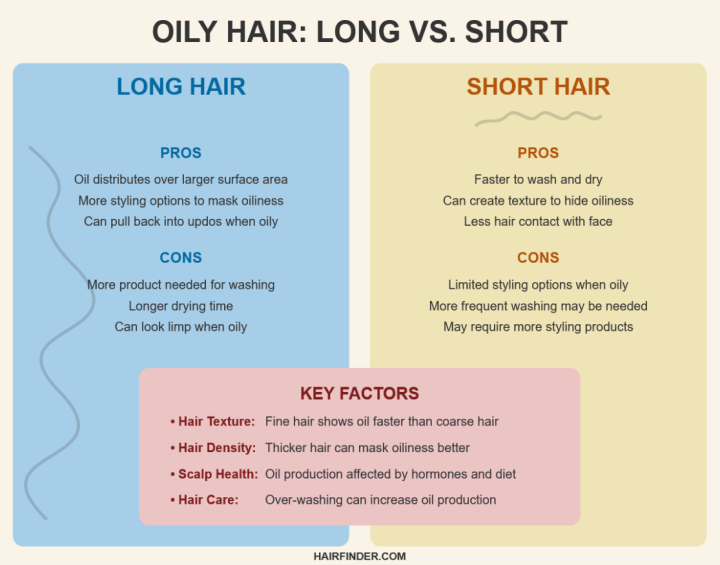Long or Short Oily Hair

My friend's theory is that you should cut oily hair as short as possible. Really short hair will stand up in spikes and it cannot turn into stringy limp strands. Washing short hair is easier too. What is your opinion? I'm going through a haircut dilemma right now: grow it out or cut it pixie short.
A: The relationship between hair length and oiliness is more complex than it might first appear. While both you and your friend make interesting points, the reality of managing oily hair depends on multiple factors beyond just length.
Your friend's perspective also contains valid points. Short hair, especially when cut into a pixie or textured style, can create volume that lifts hair away from the scalp, potentially making oiliness less noticeable. The architecture of short hairstyles can sometimes disguise oiliness better than longer styles that may lay flat against the scalp. And yes, washing shorter hair typically requires less shampoo and drying time, which can be convenient for frequent washing routines.
However, oil production isn't fundamentally a hair length issue. It's primarily determined by your scalp's sebaceous glands. These glands produce sebum (oil) regardless of how long or short your hair is. The amount of oil your scalp produces is influenced by genetics, hormones, diet, stress levels, and even the products you use on your hair.
Hair texture and density play crucial roles too. If you have fine hair, it may appear oilier faster because each strand gets weighed down more easily. Meanwhile, coarse or curly hair often appears less oily because the natural oils have a harder time traveling down the hair shaft. Thick, dense hair might mask oiliness better than thin hair, regardless of length.
Your hair's porosity - how well it absorbs and retains moisture- also affects how oily it looks. Damaged, porous hair tends to absorb oils more readily, while healthy, less porous hair might appear oilier more quickly because the oils remain on the surface.

Ultimately, your haircut decision should consider your face shape, lifestyle, and personal taste alongside oil management. If you love the look of a pixie cut and enjoy the ease of washing short hair, that might be your answer. If you prefer the versatility of longer locks and are willing to adopt oil-management strategies, growing it out could work beautifully.
©Hairfinder.com
See also:
What are good hairstyles to hide oily hair?
Greasy hair and volume
Causes and solutions for oily hair
Hair combing and brushing basics